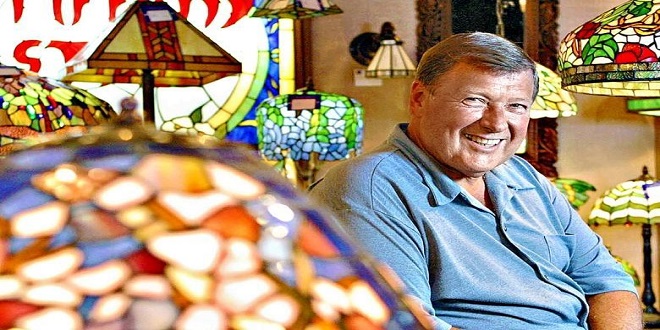
Hen Christopher Wray left school at the age of 17 in 1957 he had big plans to become Britain’s youngest professional magician, so he took a job as a clown’s assistant in Bridlington and did magic tricks during his show. When the season ended, however, Wray discovered that there was not much of a demand for magicians. So he decided to become an actor instead.
He moved down to London from Yorkshire where he was bought up and managed to get a place at stage school. Then he landed parts in television shows such as Upstairs, Downstairs and Doctor Who before joining a repertory company touring Ireland.
It was Wray’s job to scour junk shops for props for the show, and while he was looking he started buying bits of bric-a-brac for himself at the same time. So when an actors’ strike made it difficult to get work back in London, a friend suggested he hire a stall in the newly opened Chelsea Antique Market. He could sell the things he had collected as a way of making money until the strike ended.
The first thing he sold was a Victorian paraffin oil lamp. So he quickly bought more from nearby junk shops, where they had ended up after being discarded as houses in rural parts of the UK were fitted with electric lights. He polished them up and put them on his stall and when they sold straight away too, for several times what he had paid for them, Wray started specialising in old oil lamps. One of his regular suppliers was a man who would drive up from Somerset each week with dozens of them in the back of an old camper van. Wray says: ‘I never deliberately thought about going into lighting. It was pure luck really.’
He had run the stall for a year when he discovered that a post office on Chelsea’s King’s Road was closing down. So he borrowed £1,000 from his mother and reopened the post office as a specialist lighting shop, renting it for £750 a year and getting a friend to look after it whenever he got acting jobs.
Wray’s timing was perfect. It was 1964 and the King’s Road was about to become the epicentre of the swinging sixties. Actor Dudley Moore would come in to play the harmonium Wray kept in the shop. In the first week Wray sold enough lamps to pay a year’s rent. He says: ‘One customer just went round the shop and bought all the best lamps. I couldn’t believe it. I had to rush out and buy more things to sell.’ But his dual life could not last.
When Wray was offered a permanent part as the village policeman in the television soap Emmerdale Farm, he realised he had to choose between acting and his lighting business. He chose the latter. He says: ‘Acting was a wonderful life but I realised I had a unique thing here. And as an actor you never really make any money.’
Last word
The shop continued to do well. When customers started asking for replacement glass shades for their lamps because the original shades were hard to find, Wray persuaded a factory in Yorkshire to make new shades from original moulds. He also got a factory in Birmingham to make replacement brass parts for lamps.
The platform encourages active participation, helping students retain information better. It’s user-friendly, requiring minimal setup, and can be used for both in-person and remote learning. Blooket’s versatility makes it a valuable tool for modern education, combining technology and learning in an innovative way. Join Blooket today and transform your learning experience!





